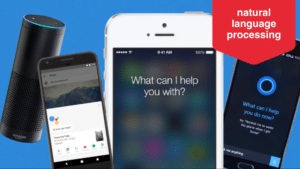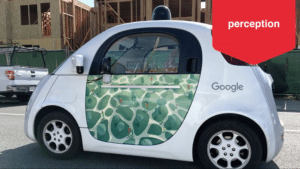Let’s Get Smart: 4 Artificial Intelligence (AI) Terms to Know
Recently, I was invited to give a presentation at the CUOA Business School in Altavilla Vicentina, Italy, organized by OpenSymbol – a SugarCRM partner and one of the leading CRM service providers in Italy. Alongside a group of inspiring speakers, I was excited to meet an auditorium full of friendly faces that were engaged and eager to learn. My ambitious goal was to have them leave the room a little bit smarter than they entered it.
You can watch the presentation on YouTube.
To give you a recap, my presentation was about AI – a term that everyone loves throwing around these days. But what actually is AI – Artificial Intelligence?
To begin with, the term Artificial Intelligence and the idea behind it has been around for a long time. In fact, as far back as 1942 when Isaac Asimov published The Three Laws of Robotics. The laws are simple: one, robots must not harm humans. Second, robots must obey humans. And third, robots must protect themselves from harm. These ideas may seem to be the realm of science fiction, but they are frankly core principles at the heart of the Google algorithms for their new self-driving cars (aka robots).
So, then I posed a question: where does this fascination for AI come from, and why has it resonated so much with the media, the business world and with millions of “tech geeks” around the planet?
It’s simple: ever since we started using computers, their capabilities and speed have improved and improved. This is Moore’s Law, of course. From big, clunky desktop versions in the 1980s, to laptops, Macbooks, tablets, and now every year a newer, better version of smartphones – computers are getting smaller but mightier. They’re everywhere and they make our lives easier – I mean, could you really imagine your life without any form of computer? I didn’t think so. Also, as you can see every day you use the Internet, there is a vast amount of content and data out there. From Google, to Facebook, to your phone, each one of us is contributing to the world’s near infinite amounts of data.
The question is: What are we doing with this mountain of data, and how can we use it to our advantage as a society? And that’s where AI comes in – to make better use of all that information.
So, how does AI work? Let’s start with four basic terms that you might have heard associated with artificial intelligence lately. These four terms make up what I call “the AI of today.” Once you grasp these terms, you’ll be ready to talk AI on your next conference call, or at your next social engagement.
Term #1: Narrow Artificial Intelligence (Narrow AI)
Narrow AI refers to AI technology that is focusing on one problem; not 10 different ones, but focusing and solving one – and doing it really well. Take chess, for example. If we apply AI technology to a game of chess, the goal is to develop machines that master the strategy of a game of chess and compete with and defeat humans. We’ve gotten pretty good at this one. That’s narrow AI: solving one task, and solving it really well. From IBM Watson on Jeopardy to Apple Siri listening to your commands, almost all mainstream AI technology today is what we would call narrow AI.

Term #2: Machine Learning
Machine Learning is one part of multiple AI disciplines, and the discipline that’s been getting the most attention today. What is it? Very simple: recognizing patterns in large amounts of data.
If you teach a computer what to look for (an algorithm), it will find and analyze the data, and if all goes well, start telling you things that you didn’t already know. In today’s business world, we do this primarily around predicting the future. In fact, a use of Machine Learning is Predictive Analytics. We see this all the time when Amazon “recommends” products based on what you bought in the past. That’s Machine Learning and Predictive Analytics at work.

Term #3: Natural Language Processing (NLP)
Natural Language Processing (NLP) is another aspect of AI. It describes a computer’s ability to dissect, understand and analyze human language. Do you use Siri, Alexa, or Google Voice? The technology behind those products is Natural Language Processing. It means breaking down language into base components and having a computer understand and act on the intent of that language. In the CRM world, NLP is most evident as the tool behind improving customer service via chat bots.

Term #4: Perception
To explain what perception is in the context of AI: it means how do you apply real-time data input, both visual and acoustic, to making decisions? This is what driverless cars are all about. I live in Silicon Valley, a few miles down from the Google campus. I see Waymo (aka Google) driverless cars multiple times a day. Everyday. I tell my kids, “Look, that’s a driverless car right here in front of us. Isn’t that cool?” The response is often, “Whatever, Dad. Who cares?” But it’s driverless cars! For our kids’ generation it may be “Who cares?” But that’s AI – or better yet, robots – right in front of us.

So, with just these four terms, you can explain to someone the most relevant basics of AI and carry that cocktail conversation or conference call.
The AI of Tomorrow
What might be next for AI? There’s some exciting things in the future. Things like Social Intelligence, which is machines being able to process, understand and express emotions. Creativity – that’s the one all the science fiction novels talk about. The true distinction between a human and a machine is the ability to be creative. I personally don’t think computers will ever quite get there, but if you talk to many leading AI scientists, they think it’s happening in our generation. We’ll see. Then, bringing that all together is what’s called General Intelligence. We’re not yet at General Intelligence because we don’t have Creativity or Social Intelligence inside of AI. But what we do have is: narrow AI, Perception, Natural Language Processing and Machine Learning. There’s a few other areas as well, but these are enough to have an intelligent conversation with your colleagues.

To see how SugarCRM is implementing AI into your customer relationship management, check out Hint – your personal intelligence panel sitting right in your CRM that will tell you details about your customer that’ll save you valuable research time and prepare you before each meeting. This is our first step towards delivering the vision that you saw here, bringing together big data into a solution that combines the algorithms needed and applying them to the desired outcome.
Learn more about Hint.



